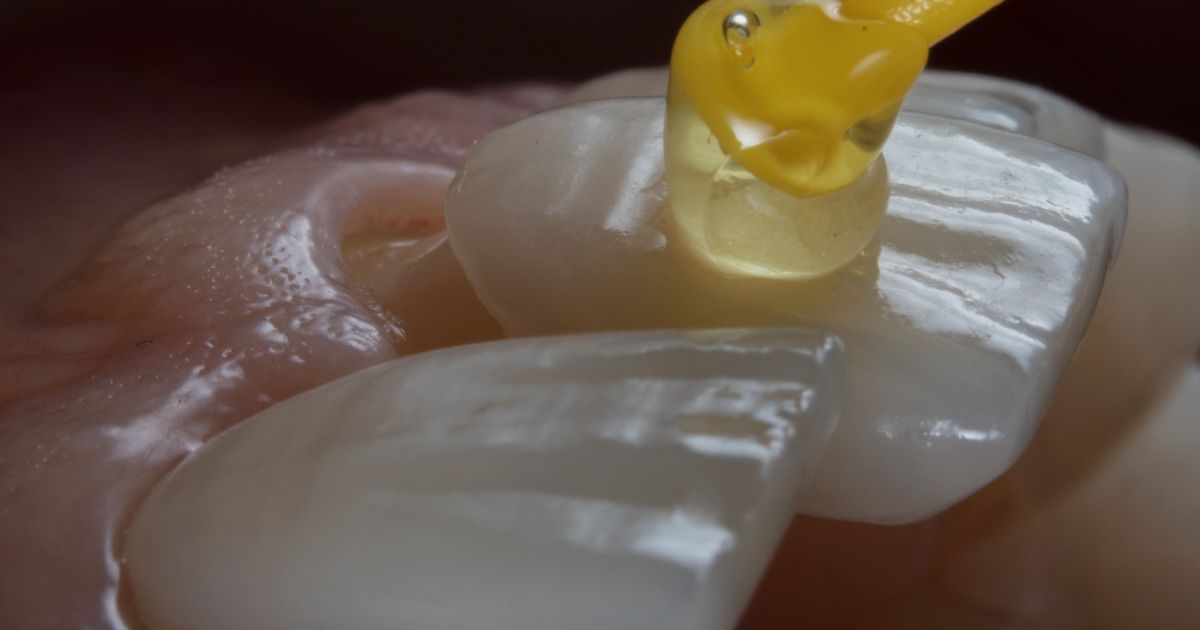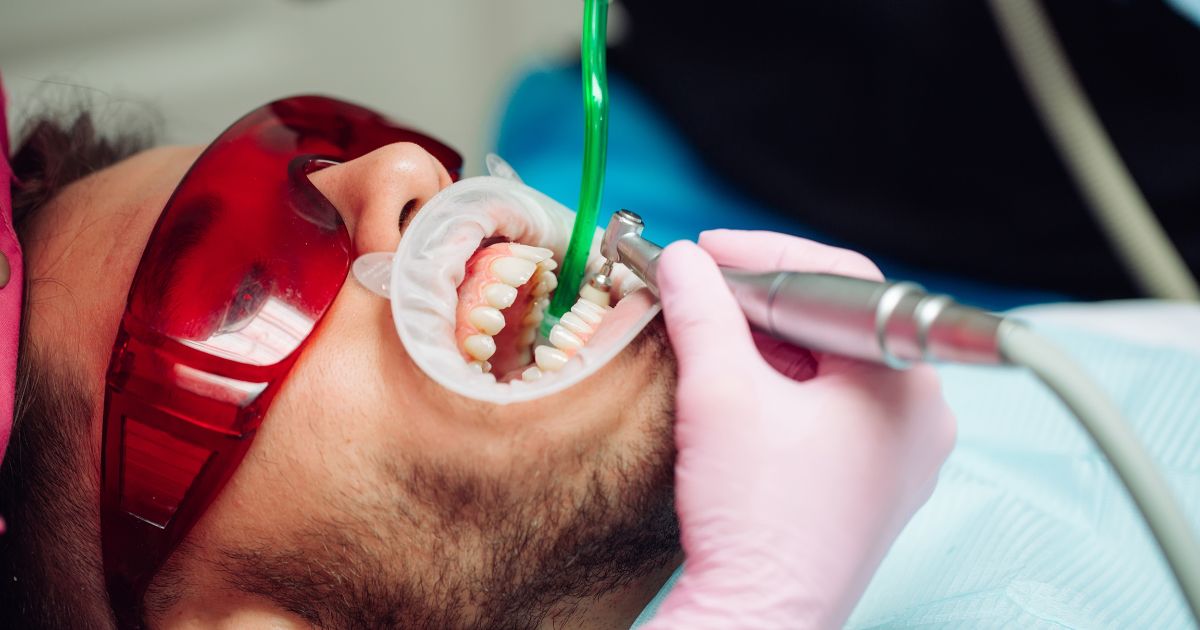
Do Veneers Get Stained?
Whether you’re contemplating veneers in the vibrant city of Dubai or have already embraced this transformative dental solution, a common query lingers: Do Veneers Get Stained?? This comprehensive exploration delves into the factors influencing veneer discoloration, empowering you with knowledge to make informed choices for maintaining that radiant smile.
Do Veneers Get Stained?: Unraveling the Veneer Myth
Tooth staining, a natural concern for many, arises from various factors such as beverage consumption, tobacco use, and oral hygiene. While natural teeth readily absorb staining agents, veneers, though designed to resist staining to some degree, are not entirely impervious.
Beverage Influence:
Natural teeth may succumb to stains from coffee, tea, and red wine, but high-quality veneers are generally resilient.
Tobacco:
Veneers typically remain unstained despite the discoloration caused by smoking or chewing tobacco.
Medication Side Effects:
Unlike natural teeth, veneers commonly resist staining effects associated with certain medications.
Oral Hygiene:
While poor oral hygiene can stain natural teeth, veneers are less likely to be affected by plaque accumulation.
Material Matters:
The quality of veneer material significantly influences susceptibility to staining.
The Lifespan of Veneers and Their Resistance to Staining
Dental veneers can last 10 to 20 years, with their longevity closely tied to their resistance to staining. High-quality porcelain veneers, for instance, can retain their color and shine for many years with proper care.
| Factor | Impact on Lifespan | Impact on Stain Resistance | Relevant for Porcelain | Relevant for Composite Resin |
| Material Quality | High | High | Yes | Yes |
| Regular Maintenance | High | Moderate | Yes | Yes |
| Professional Cleanings | Moderate | High | Yes | Yes |
| Wear and Tear | Moderate | Moderate | Limited | Yes |
| Bonding Process | High | High | Yes | Yes |
| Financial Investment | Moderate | None | Yes | Yes |
The Role of Material: Porcelain vs. Composite Resin Veneers
The material of the veneer significantly impacts its susceptibility to staining. Porcelain veneers, less porous and more stain-resistant, outshine composite resin veneers in terms of durability and longevity.
Porcelain Benefits:
Known for durability and resistance to staining.
Composite Resin Limitations:
While cost-effective, may stain more easily and have a shorter lifespan.
Initial Costs:
Porcelain veneers have a higher upfront cost but offer better long-term value.
Maintenance Costs:
Composite resin veneers may require more frequent replacements, increasing long-term expenses.
Color Matching:
Porcelain provides better color matching and a more natural appearance.
Material Structure:
The porous nature of composite resin makes it more susceptible to staining agents.
Professional Advice:
Consult your dentist for personalized advice on the most suitable veneer material for your needs and lifestyle.
How Oral Hygiene Habits Impact Veneers and Staining?
Effective oral hygiene practices play a crucial role in maintaining veneer appearance and lifespan. Regular brushing, flossing, and non-abrasive toothpaste use prevent plaque buildup and surface stains.
Oral Hygiene Habits:
Regular brushing and flossing extend veneer longevity and reduce surface stains.
Flossing:
Prevents gum disease around veneers and reduces stains between teeth.
Rinsing with Mouthwash:
Non-alcohol-based mouthwash prevents luster loss and aids in stain prevention.
Avoiding Sugary Foods/Drinks:
Reduces the risk of decay under veneers and lowers the risk of staining.
Regular Dental Check-ups:
Monitor veneer condition, professional cleaning removes built-up stains.
Using Non-Abrasive Toothpaste:
Prevents surface scratches and lowers the risk of enamel erosion.
Expert Advice: What Dentists Say About Veneer Staining?
Dentists agree that veneers are more resistant to staining than natural teeth. However, maintaining appearance requires proper oral hygiene, material choice, and regular dental check-ups. Choose the best veneers in Dubai for personalized advice.
- Professional Opinion: A qualified dentist can provide insights into the most suitable type of veneer for you.
- Routine Check-ups: Regular dental visits are essential for prolonging the lifespan and maintaining the appearance of veneers.
- Quality of Material: Dentists often recommend porcelain veneers due to their stain resistance and durability.
- Cleaning Techniques: Professional cleaning methods can remove any superficial stains that may develop on veneers.
- Consultation: Before getting veneers, a detailed consultation with your dentist can clarify all your doubts about staining and maintenance.
- Follow-up Care: Regular follow-up appointments ensure the veneers are in good condition and free from potential stains.
- Customized Care: Your dentist can offer personalized advice based on oral health and lifestyle.
Maintaining Veneers: The Crucial Role of Oral Hygiene
Good oral hygiene practices are essential for preserving veneer appearance and lifespan. Regular brushing, flossing, and the use of non-abrasive toothpaste prevent plaque buildup and surface stains.
Oral Hygiene Habits Impact on Veneers and Staining
| Oral Hygiene Habits | Impact on Veneers | Impact on Staining |
| Regular Brushing | Extends longevity, maintains appearance | Reduces surface stains |
| Flossing | Prevents gum disease around veneers | Reduces stains between teeth |
| Rinsing with Mouthwash | May cause veneers to lose luster if alcohol-based | Can help prevent stains if the whitening formula |
| Avoiding Sugary Foods/Drinks | Reduces risk of decay under veneers | Lowers risk of staining |
| Regular Dental Check-ups | Helps monitor veneer condition | Professional cleaning removes built-up stains |
| Using Non-Abrasive Toothpaste | Prevents surface scratches | Lowers risk of enamel erosion, which can cause stains |
Daily Maintenance Tips: Keeping Your Veneers Looking New
Veneer maintenance mirrors that of natural teeth, requiring regular brushing, flossing, and professional cleanings. Using dental products recommended by your dentist is crucial for prolonging their life and appearance.
Daily Maintenance Tips and Why They’re Important
| Maintenance Tip | Importance | How Often to Do It |
| Use a Non-Abrasive Toothpaste | Prevents surface scratches on veneers | Twice a day |
| Soft-Bristled Toothbrush | Gentle on veneers and gums | Twice a day |
| Floss Carefully | Removes plaque around veneers, prevents gum disease | Once a day |
| Rinse with Alcohol-Free Mouthwash | Keeps veneers shiny, prevents gum issues | Once or twice a day |
| Avoid Staining Foods/Drinks | Keeps the veneer color consistent | Ongoing |
| Wear a Night Guard if Grinding | Prevents chipping or cracking veneers | Nightly if you grind your teeth |
| Regular Dental Check-ups | Professional cleaning and veneer assessment | Every 6 months |
Professional Cleaning: Safeguarding Veneers through Regular Dental Visits
Routine dental check-ups and professional cleanings are pivotal in preserving the aesthetic appeal and durability of veneers. Dentists employ specialized tools and techniques to remove surface stains without compromising the veneer material. Early detection of potential issues is another advantage of regular dental visits.
Benefits of Regular Dental Visits:
- Specialized Tools: Dentists use tools safe for veneers during professional cleaning.
- Early Detection: Regular visits catch potential issues before they worsen.
- Scaling and Polishing: Professional scaling and polishing remove superficial stains.
- Regular Schedule: Maintaining a regular dental visit schedule ensures veneers remain in optimal condition.
- Plaque Removal: Dental professionals can eliminate plaque buildup that might otherwise stain natural teeth and affect the appearance of veneers.
- Expert Consultation: Regular visits provide an opportunity to consult with your dentist for personalized advice on maintaining your veneers.
Cost and Long-term Care Considerations of Stain-Resistant Veneers
While the cost of veneers is a significant investment, their longevity and resistance to staining often justify the price. Opting for high-quality materials and skilled dental professionals can result in veneers requiring less frequent replacement and greater resistance to staining. Budgeting for routine maintenance and professional cleaning can further maximize your investment.
Financial Considerations for Veneers:
| Financial Factor | Average Cost for Porcelain Veneers (per tooth) in AED | Average Cost for Composite Resin Veneers (per tooth) in AED | Overall Importance | Impact on Long-term Care |
| Initial Investment | 3,300 – 9,200 | 920 – 5,500 | High | A significant factor in decision-making |
| Routine Maintenance | Minimal; included in regular dental visits | 184 – 736 for occasional touch-ups | Moderate | Ongoing costs can add up over time |
| Professional Cleanings | 275 – 736 per session | 275 – 736 per session | Moderate | Essential for stain prevention |
| Repair/Replacement | 3,300 – 9,200 | 920 – 5,500 | High | Major cost factor in long-term care |
| Dental Insurance Coverage | Rarely covered; partial coverage possible | Rarely covered; partial coverage possible | Moderate | Can mitigate initial and ongoing costs |
| Follow-Up Costs | Low; less frequent replacements needed | Moderate; more frequent replacements needed | Moderate | Long-term budgeting required |
Choosing veneers is a transformative decision, influencing your smile and confidence. Whether you’re asking, “Do veneers get stained?” or contemplating the choice between porcelain and composite resin veneers, understanding the long-term care considerations, costs, and maintenance is crucial. For personalized advice tailored to your unique needs, consult professionals who can guide you through the process, from material selection to aftercare.
For the best veneers in Dubai and expert guidance on maintaining their radiance, reach out to Best dentist in Dubai.
FAQs
Are veneers in Dubai stain-resistant?
Yes, high-quality veneers, especially porcelain, are designed to resist staining, offering enduring brilliance.
How long do dental veneers last?
The lifespan of veneers ranges from 10 to 20 years, depending on factors such as material quality and proper care.
Can veneers be affected by coffee or wine?
While high-quality veneers resist staining from coffee and wine, moderation and regular maintenance are advisable.
What is the cost difference between porcelain and composite resin veneers?
Porcelain veneers generally have a higher upfront cost but offer better long-term value compared to more affordable composite resin.
Do veneers require special maintenance?
Routine brushing, flossing, and professional cleanings, similar to natural teeth, help maintain the appearance and longevity of veneers.
Table of Contents



